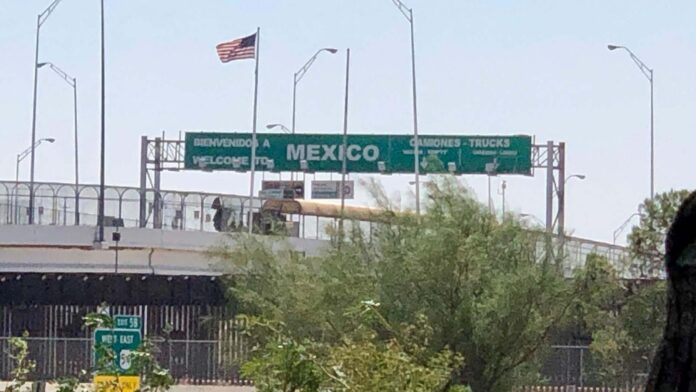by the El Reportero‘s staff
As Donald Trump prepares for his return to the presidency, Mexico is working to establish a deal aimed at curbing the number of third-country deportees it may receive from the United States. Mexican President Claudia Sheinbaum confirmed this during a press conference on Thursday, expressing hopes to build on agreements already in place with the Biden administration.
“We are in solidarity with everyone, but our primary responsibility is to our own citizens,” Sheinbaum stated, emphasizing Mexico’s readiness to negotiate with Trump’s administration. “We hope to secure an agreement that allows deportees to be returned directly to their countries of origin.”
To address potential mass deportations, Sheinbaum said her administration is coordinating with governors of border states, including Baja California, Sonora, Chihuahua, Coahuila, Nuevo León, and Tamaulipas. The discussions aim to prepare for the possibility of large numbers of repatriated Mexicans.
“We are preparing for every scenario,” she noted, “and although we hope such deportations won’t occur, we must be ready to welcome our compatriots.”
Karoline Leavitt, spokeswoman for Trump’s transition team, highlighted the incoming administration’s tough stance on immigration. “President-elect Trump has a mandate to secure the border, deport dangerous individuals, and ensure public safety,” Leavitt said in a statement to CNN. “He will fulfill that commitment.”
Sheinbaum and Trump recently held a conversation about shared border issues and the fentanyl crisis, which both leaders described positively. On X, Sheinbaum characterized the call as “excellent,” while Trump claimed on Truth Social that Mexico had agreed to halt migration through its territory. Sheinbaum quickly dismissed this claim.
“We have never proposed closing the border,” Sheinbaum said. “That is not our approach, nor do we agree with it. Everyone communicates differently, but let me assure you that this has never been part of our discussions.”
This marks the first major interaction between Sheinbaum and Trump since the latter announced plans to impose tariffs on Mexican goods in retaliation for illegal immigration. While Sheinbaum has expressed readiness to counter any economic measures with reciprocal tariffs, her administration remains focused on collaborative solutions.
Mexico has also intensified efforts to address border security and drug trafficking. This week, Mexican authorities announced the largest fentanyl seizure in the nation’s history, recovering over a ton of the synthetic opioid in Sinaloa. Additionally, data revealed that Mexican authorities have detained an average of 5,200 migrants daily since Sheinbaum took office on October 1.
The migration crisis at the U.S.-Mexico border continues to evolve, with migrants from Central and South America, as well as countries like Venezuela, Cuba, and increasingly China, attempting to cross into the U.S. The U.S. Customs and Border Protection reported over half a million encounters with migrants from Central America in 2022 alone.
Elsewhere in Latin America, Panama has preemptively rejected the notion of accepting deportees of non-Panamanian origin. The Panamanian Foreign Ministry issued a statement emphasizing the country’s adherence to international law and its commitment to safeguarding national interests.
“We are not obligated to accept non-Panamanian deportees,” the ministry asserted. “Our foreign policy prioritizes mutual respect and the well-being of Panama.”
The migration and border crisis remain one of the most pressing issues for the region. Both Mexico and its neighbors are navigating the complex challenges of international law, humanitarian obligations, and domestic interests, all while preparing for significant shifts in U.S. immigration policies under the incoming Trump administration.
– From reports by Abel Alvarado, CNN, and additional sources including the Panamanian Foreign Ministry.



